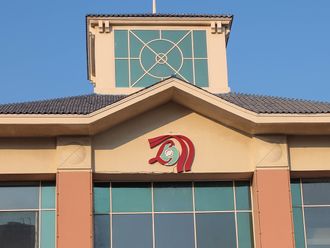Dubai: A growing number of consumers in the region are desperate for help with their money problems, but they feel let down by the lack of unbiased financial information and guidance from product providers and finance institutions.
A survey conducted by cashy.me, a newly created personal finance website, showed that 77 per cent of consumers in the Arab world are unhappy with the financial services available to them. About 60 per cent of them said they were not handling their finances as well as they could, and almost a third (31.3 per cent) confessed to worrying about their debts.
While more than half (61.6 per cent) felt the media was taking responsibility for helping consumers better manage their finances, only 43.9 per cent believed that banks "acted in any way responsible for personal finance education."
Nima Abu-Wardeh, founder of cashy.me, said their survey only shows that "people are crying out for help" and that there is a "great need for a resource that helps consumers navigate the financial minefield."
The survey covered 160 respondents in the UAE, Saudi Arabia, Bahrain, Kuwait, Qatar, Oman and other parts of the Arab world.
Sandi Saksena, financial planner and member of Million Dollar Round Table, an association for financial professionals, said there is a "wide gap" of financial information for people in the region.
She said all product sellers and banks are merely focused on advertising and marketing, leaving little or no resources for producing qualified consultants and educating consumers.
Resources
"Impartial information is difficult to find as there are practically no resources available to expatriates living in the GCC — be it publications or the net.
Any information available is either US or UK centric. Language is another important issue," Saksena told Gulf News.
Steve Gregory, managing partner of Holborn Assets, admitted there's a shortage of qualified financial advisers. He estimated that about 70 per cent of products in the UAE are being sold by "people who have no idea about the benefits and charges to people who are then misinformed."
"No wonder the public are afraid of the salesmen. There is nowhere to complain, no consumer protection and no complaints procedure. Customers are not treated fairly," Gregory pointed out.
Mohammed Qasim Al Ali, chief executive officer of National Bonds Corporation, agreed that there is indeed limited access to independent, non-commissioned based financial advisors in the UAE.
"Frequently, there is a conflict of interest when it comes to the value proposition of financial institutions which are involved in both borrowing and saving," he told Gulf News.
Lama Kabbani, corporate communications manager of Visa, said it is important that people possess the necessary financial skills so they can manage their money better in these challenging economic times.
She said people should have adequate knowledge about the ins and outs of banking, given that banks serve as a "conduit for their relationship with their money."
It is also imperative that people start to learn about money management skills from a young age, so they can develop skills that will stand them in good stead later in life.
Decisions
"Money management decisions are something that most people deal with on a daily basis, whether it's paying for an electricity bill or applying for a mortgage. Possessing the skills to make the right money management decisions gives people greater control over their finances, the ability to deal with unexpected costs and the skills to budget and save responsibly," Kabbani told Gulf News.
Visa recently launched a website, www.mymoneyskills.me to improve money management and budgeting skills of residents in the Middle East.
The website, just like cashy.me, aims to provide consumers with fundamental personal finance information.












